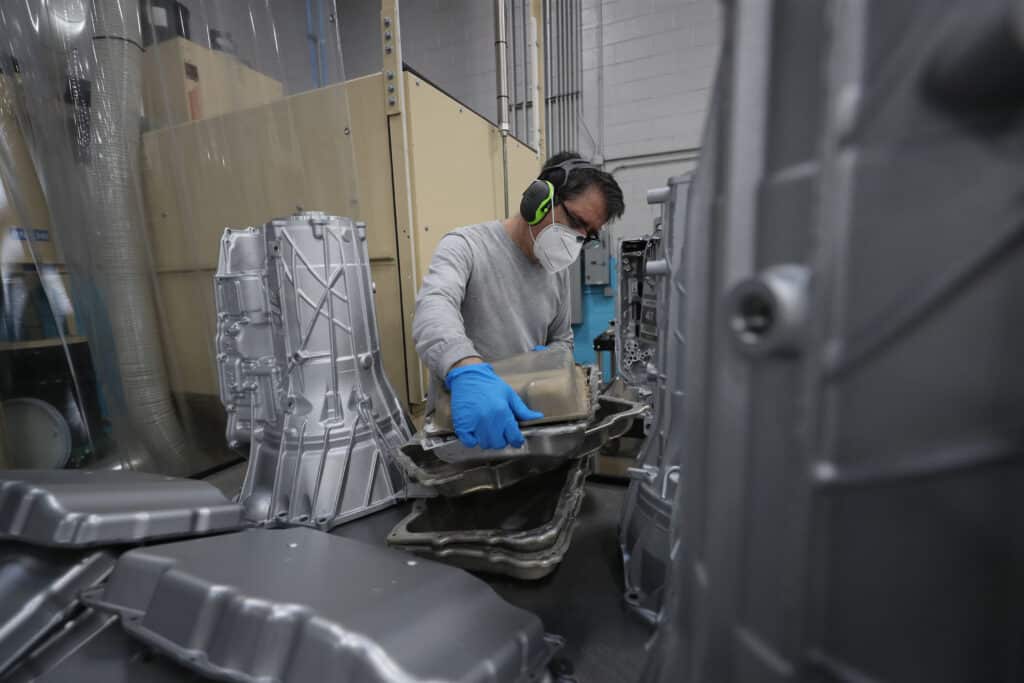
Article At A Glance
- Automotive remanufacturing has emerged as a crucial aspect of this shift. It allows companies like Dynamic Manufacturing to extend the lifecycle of parts while minimizing waste and reducing their carbon footprint.
- Sustainability in remanufacturing involves keeping materials in circulation, decreasing demand for new resources, and reducing landfill waste.
- Companies recognize the value of green processes and policies, with Dynamic Manufacturing leading the way by adopting eco-friendly practices that meet regulatory and consumer expectations.
- Choosing sustainable remanufacturing solutions offers numerous benefits to businesses and consumers, such as cost savings, high-quality products at a lower price point, and alignment with ESG goals.
Sustainability is no longer an option for the automotive industry—it’s essential. As the world pushes for greener practices, the industry is exploring innovative ways to reduce waste, conserve energy, and meet environmental goals. Dynamic Manufacturing is at the forefront of this transformation, pioneering sustainable solutions in automotive remanufacturing that help the industry and the planet.
The Rise of Sustainability in the Automotive Industry
In recent years, the manufacturing industry has developed sustainable practices. As environmental concerns grow more pressing, many companies prioritize eco-friendly manufacturing choices that reduce their carbon footprint and embrace a circular economy.
Automotive remanufacturing—restoring used components to like-new condition—is a crucial part of this shift. It extends the lifecycle of parts while decreasing waste. Dynamic Manufacturing, a leader in this movement, has pioneered sustainable remanufacturing solutions, transforming the industry. Companies now recognize that green practices can reduce environmental impact and bring substantial economic benefits. Production costs are climbing, and resource depletion is a concern; remanufacturing provides a cost-effective and eco-conscious alternative.
Why Sustainability Matters in Automotive Remanufacturing
Sustainability in the remanufacturing industry goes beyond “doing good”—it’s a practical response to global environmental needs, by keeping materials in circulation, reducing the demand for new resources, and minimizing landfill waste, remanufacturing addresses critical environmental challenges.
Key highlights of sustainable remanufacturing include:
- Lowering the need for virgin materials and preserving natural resources.
- Reducing landfill waste, promoting a circular economy.
- Providing an eco-friendly alternative that benefits both companies and consumers.
With the rising demand for greener automotive solutions, companies like Dynamic Manufacturing are leading the way. They adopt practices that preserve resources while meeting both regulatory standards and consumer expectations. This growing trend of green processes across the industry signals a promising move toward environmental responsibility, tackling challenges such as waste reduction and energy efficiency on a broader scale.
Dynamic Manufacturing’s Commitment to Eco-Friendly Practices
Dynamic Manufacturing’s approach to remanufacturing involves more than reusing materials; it also involves a steadfast commitment to greener production processes. The company dedicates itself to reducing its environmental impact at every level, from waste reduction to energy conservation, while effectively managing production costs.
Implementing advanced solutions and adhering to strict environmental standards, Dynamic Manufacturing makes eco-conscious choices that set an industry standard. This approach shows that environmental responsibility and efficiency can go hand-in-hand, benefiting both the planet and production factors influencing cost-effectiveness. The company also invests in key technologies, such as precision manufacturing tools and improved machinery, to maximize production output without compromising its eco-friendly goals.
Green Processes: How Dynamic Reduces Waste and Energy Use
Dynamic Manufacturing has implemented green processes aimed at minimizing waste and conserving energy. These efforts include:
- Reclaiming materials and using energy-efficient machinery to reduce the company’s carbon footprint.
- Conducting systematic reviews to ensure each production cycle meets sustainability and quality standards.
- The ultimate vision is to create a closed-loop system where products are continually recycled and reused, supporting the broader goals of a circular economy in the manufacturing industry.
Benefits of Choosing Sustainable Remanufacturing Solutions
Sustainable remanufacturing offers companies a unique mix of environmental and economic benefits, including:
- Cost-effective, durable alternatives to newly manufactured parts.
- Eco-friendly solutions that support efficiency and sustainability goals.
- Dynamic’s advanced remanufacturing practices enable businesses to lower costs while enhancing performance and reducing their environmental footprint.
With a focus on advanced solutions, businesses can meet their production factors, cut costs, and gain a competitive edge while reducing their overall environmental footprint.
Meeting ESG Goals Through Sustainable Manufacturing
Environmental, Social, and Governance (ESG) goals are today’s essential business benchmarks. Dynamic Manufacturing’s sustainable practices help clients achieve these goals, aligning with their ESG commitments through products and services designed for minimal environmental impact.
Choosing Dynamic’s sustainable solutions allows companies to advance environmental objectives, reduce resource dependency, and contribute to global sustainability efforts. Leveraging key and communication technology, Dynamic becomes a valuable partner for organizations committed to social and environmental responsibility. The company also supports its partners by providing insights into how sustainable practices can be integrated across their operations, reinforcing the importance of sustainability at every level of the manufacturing process.
Industry Challenges and How Dynamic is Leading Change
The shift to sustainable remanufacturing isn’t without its challenges. The automotive industry faces hurdles such as regulatory demands, technological limitations, and building consumer awareness. Yet, Dynamic Manufacturing tackles these challenges head-on.
Through investments in innovative technologies, advocacy for sustainable standards, and education of partners on the benefits of remanufacturing, Dynamic drives positive change in the industry and sets an example for green manufacturing. The company’s ability to streamline production costs while maintaining a commitment to eco-friendly practices demonstrates that sustainable automotive manufacturing is both a feasible and profitable choice.
Additional Read: How Remanufacturing Can Extend the Lifespan of ICE Drivetrain Products
The Future of Sustainability in Automotive Remanufacturing
The future of sustainable automotive remanufacturing looks promising, with Dynamic Manufacturing leading the charge. As technology advances and industry standards evolve, remanufacturing will become an even more efficient and environmentally responsible choice.
With continued dedication to eco-friendly practices, Dynamic is poised to play a central role in shaping a sustainable future for the automotive sector. Forward-thinking initiatives, green practices, and consistent innovation will improve the entire remanufacturing industry’s environmental and economic impacts.
Focusing on production factors and adopting advanced solutions, Dynamic Manufacturing significantly contributes to sustainable progress across the industry. Integrating key technologies and committing to sustainability, the company ensures that automotive remanufacturing will continue to thrive as a key part of a circular economy.
Start Your Sustainable Journey with Dynamic Manufacturing
For those seeking quality remanufactured automotive components from a company dedicated to environmental responsibility, Dynamic Manufacturing offers unparalleled expertise. Connect with Dynamic Manufacturing online or call (708) 343-8753 today to speak to a company representative in Hillside, Illinois.



